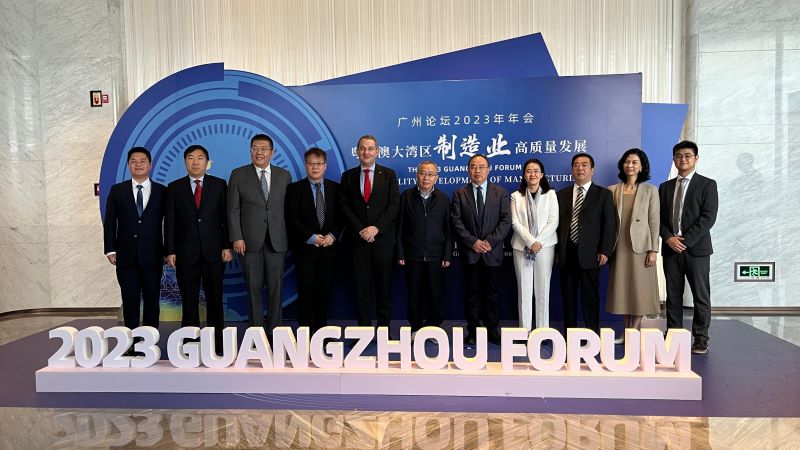Enhancing ASEAN's Economic Growth through Optimising Digital Technology in Trade and Value Addition
Share Article:
Print Article:
Guangzhou, 1 December 2023: Dr Lili Yan Ing, ERIA’s Lead Advisor for the Southeast Asia Region, participated in the 2023 Guangzhou Forum in a thematic dialogue titled ‘Guangzhou’s Role in Pioneering a China-ASEAN Common Market.’ This session was moderated by KE Yian, a research fellow at GIG. Esteemed speakers from both China and Asia graced the session, including Former Director-General of the Department of Foreign Economic Relations, Dr Zhao Jinping; Chairman of Singapore National Committee for Pacific Economic Cooperation, Dr Tan Khee Giap; Research Director of International Economics and Development Policy, Dr Kirida Bhaopichitr; and Founder and President of the Centre for Globalization Hong Kong, Dr Qiu Zhenhai.
The session commenced with Dr Ing’s presentation on the integration of Robots and AI, which has a profound impact on productivity, resulting in substantial cost reductions at both individual firms and aggregate levels. Companies embracing automation not only increase output but also enhance their competitiveness, leading to higher export shares, a broader product variety, and improved product quality. Despite concerns about the displacement effect on labor, the overall impact on employment and wages is nuanced. While some jobs may be displaced, the productivity effect tends to elevate labour conditions and wages, and the reinstatement effect reintroduces labour into a wider range of tasks.
Regarding trade dynamics, the adoption of Robots and AI facilitates trade, especially between developed and developing nations. Developed countries incorporating these technologies witness an expansion of exports from developing countries, particularly in sectors experiencing high levels of automation. Larger, globally connected firms in developing countries are more likely to adopt these technologies, gaining market shares at the expense of non-automating firms. To harness the benefits of automation, strategic investments in physical and digital infrastructure, as well as human capital, are crucial. Dr Ing then suggested that the ASEAN region can increase its economic growth by improving its value added, among other things, through the use of digital technologies, as well as by optimising the implementation of trade and investment agreements to expand markets.








